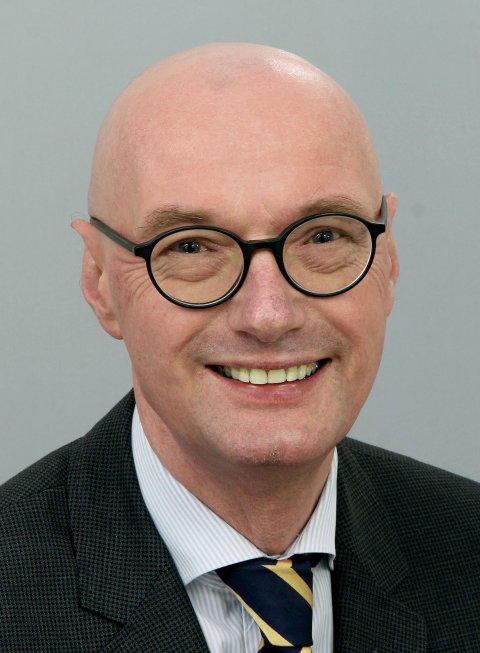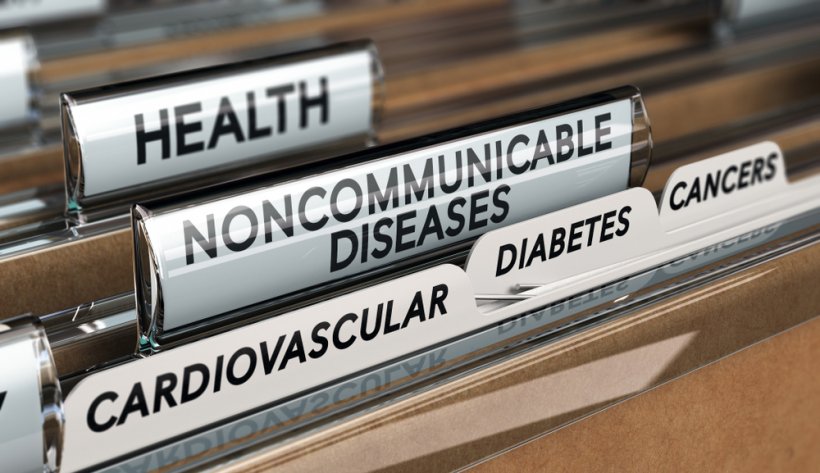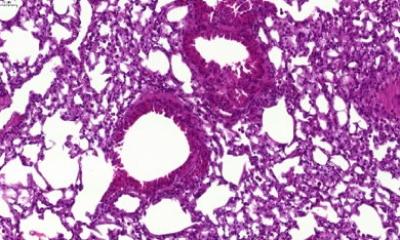
Image source: Shutterstock/VectorMine
Interview • Chronic inflammations
GATA-3: 'Switching off' allergies and asthma
Chronic inflammatory diseases, such as allergies and asthma, are not only an acute problem but also a major research and prevention challenge. We spoke with Professor Harald Renz, Director of the Institute for Laboratory Medicine at the University Hospital Gießen/Marburg, Germany, and discussed the major reason for increases in the number of these widespread diseases.
Interview: Walter Depner
‘Allergies such as asthma, neurodermatitis and hay fever,’ observed Professor Harald Renz, ‘are so-called non-communicable diseases – NCDs. All NCDs, including auto-immune, cardio-vascular and neuropsychiatric diseases, are rising worldwide. This group of diseases is associated with a genetic disposition. Genes, however, do not lead to the outbreak of NCDs, including allergies. Outbreak is triggered by certain environmental and lifestyle factors.
‘Most experts seem to agree that NCDs, and thus allergies, are increasing because the lifestyles in the Western industrialised world poses a major challenge for the immune system: it produces an abnormally vigorous response to rather benign environmental substances, the allergens. Why this excessive reaction? Due to the Western lifestyles the immune system lacks sufficient training, particularly during childhood. This training is necessary to induce immunological and clinical tolerance. Microbes, harmless bacteria from the environment, trigger tolerance induction.’
Can you give us some figures and stats?
‘Since World War II, the prevalence of allergies has been escalating significantly – in the Western industrialised world. We estimate that each third child is born with an allergy risk. Recent studies at the Robert Koch Institute show this increase to continue unabatedly. Approximately 10 percent of the population suffer from asthma, the most severe manifestation of the respiratory tract. Moreover, food allergies are rising.’

What about new strategies, pharmaceuticals, therapies, prevention, and so on?
Prevention is in the early stages and still largely neglected, on the clinical and political level. For the general practitioner (GP) prevention doesn’t pay because it’s poorly or not reimbursed at all. However, the pharmaceutical industry is developing new medications, based on improved knowledge about inflammatory response at the root of the diseases. These pharmaceuticals are very effective in containing the inflammatory response, but they are also very expensive.’
You have spoken about new pathophysiological concepts for asthma and allergies; do these include new diagnostics and medication?
‘We’ve been working on the development of an active substance to control the main switch of allergic inflammatory reaction – the transcription factor GATA-3. Our approach from day 1 was to neutralise this intercellular messenger via an intracellular attack on the level of the so-called messenger-RNA, which is a stage leading to the synthesis of the GATA-3 protein. Our clinical data on asthma, as well as on a special form of COPD and, most recently, ulcerative colitis, show unambiguously the effectiveness and safety of this approach. Nevertheless, larger studies are required to document the broader efficiency in more detail.
‘Currently, this molecule is being further developed by the start-up sterna biologicals. It is very impressive to see that today a molecule is available that’s based on an idea that’s been maturing for 20 years – a molecule which can be used in human patients and which has positive effects.’

Image source: Shutterstock/Olivier Le Moal
In 2017 you and Professor Holger Garn jointly received the Paul Martini Award for your work on new allergic asthma medication. The substance you developed prevents certain immune cells from using a specific gene involved in the disease. How is this progressing?
‘It was an honour to receive the award for our group’s work in pharmaceutical development. More than 20 years ago – still at Charité in Berlin – my group looked into possibilities to use a then newly discovered main switch for allergic inflammatory reactions in new medication. Since this switch is within cells, we needed a substance that is effective on the cell level. We opted for a then innovative way: to address the messenger RNA – the mRNA.
‘It took over a decade to launch the first clinical study, initially with healthy subjects, to test the therapy’s safety. Later we included subjects suffering allergic asthma. Today we are about to test this therapy approach in larger studies and for other pathologies largely regulated by this main switch, the transcription factor GATA-3.’
What can you forsee in this field in the future?
‘I can imagine that, in ten years, we will have something like an allergy vaccine, very much like our vaccines against infectious diseases today. But that’s still a long way to go.’
Profile:
Professor Harald Renz trained at the National Jewish Medical and Research Centre in Denver, Colorado (1989-93) and Charité in Berlin (1993-99). He now directs the Institute for Laboratory Medicine at the University Hospital’s locations Giessen and Marburg, where he researches chronic inflammatory diseases. He he is a representative and is a representative of the German Centre for Lung Research. Renz was also a Fulbright scholar and visiting Professor at Harvard Medical School and at Hadassah University Jerusalem.
31.10.2019





